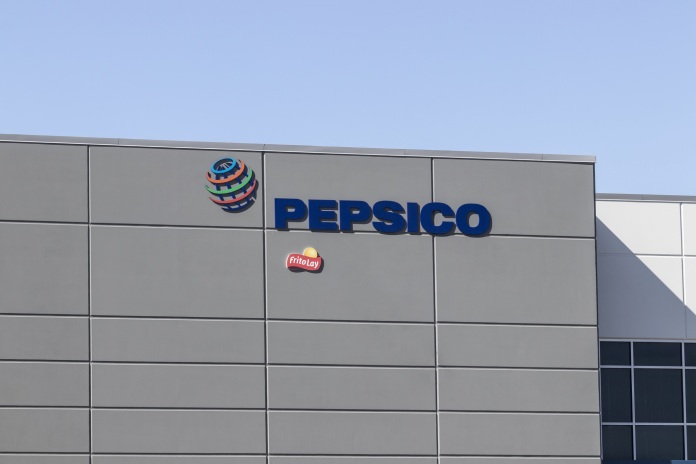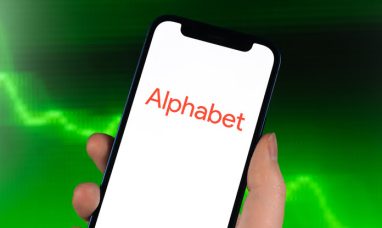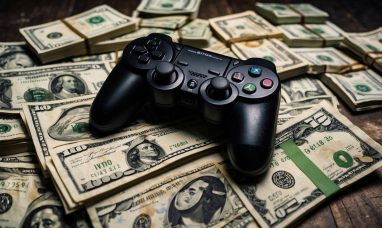PepsiCo stock (NASDAQ:PEP)
PepsiCo stock (NASDAQ:PEP) is a Buy now. PepsiCo has the most sales of non-alcoholic drinks and snacks. How PepsiCo is valued now must consider how much the company could grow in domestic and international markets. My price goal for the next 12 to 18 months is $240.
About the Company
PepsiCo is a global food and drink company that has been around for over a hundred years. Caleb Bradham started the company in 1898. He did this after making “Pepsi-Cola,” a carbonated soft drink. The drink was first sold at soda fountains before being put in bottles and sent all over the country. In the 1950s, PepsiCo bought Frito-Lay, a snack food company, to sell more than just carbonated drinks. Over the next few decades, the company grew and changed by moving into new categories and markets worldwide. With brands like Pepsi, Mountain Dew, Lay’s, Gatorade, Tropicana, and Quaker, PepsiCo is now a world leader in the food and drink industry.
Market Trends in the Food and Drink Industry
Several current trends are affecting the food and drink business. PepsiCo and many other food and drink companies put a lot of effort into health and wellness, sustainability, convenience, innovation, and making their products more expensive. The company has put out several healthier products, such as drinks with less sugar and fewer calories and healthier snack options. PepsiCo has also taken steps to reduce its effect on the environment, such as using more clean energy and making less trash. The company has made things easier by making single-serve options and ready-to-drink drinks. PepsiCo has also come out with new products, like flavored water and snacks made from plants. Some of the company’s products, like premium sodas and high-end snack brands, have also been made available in a premium version.
It’s hard to make accurate predictions about how a company will do in the future because it depends on many things, like market conditions, competition, and business decisions. Still, PepsiCo is likely to keep putting health and wellness, sustainability, convenience, innovation, and premiumization at the top of its list of priorities in the coming years. The company could also look into new market opportunities, such as those in emerging markets or areas like plant-based protein. PepsiCo could also face problems like more competition or changing tastes among customers.
Risks That Could Affect PepsiCo’s Performance
Changing consumer tastes: Consumer tastes can change quickly, and if PepsiCo can predict or adapt to these changes, the company’s performance may improve.
Competition: PepsiCo competes with other large beverage and snack companies and smaller local players. This competition could affect the company’s market share and how much money it makes.
Economic downturns: When the economy is bad, people may spend less on non-essential items like snacks and drinks, which could hurt PepsiCo’s sales.
Supply chain disruptions: PepsiCo relies on a complicated global supply chain to get its raw materials and ship its products worldwide. Natural disasters or political unrest could cause problems in this supply chain, affecting how the company does business and how much money it makes.
Cybersecurity risks: Like all businesses, PepsiCo is vulnerable to cybersecurity risks, and a successful cyberattack could hurt the company’s operations and reputation in a big way.
Regulatory risks: PepsiCo has to follow many rules, and if these rules change or the company doesn’t follow them, it could face fines or damage to its reputation.
Competitors
PepsiCo is a multinational food and drink company that works in a market with a lot of competition. These are some of PepsiCo’s main competitors:
Coca-Cola (NYSE:KO): Coca-Cola is the world’s largest beverage company and competes with PepsiCo in the market for carbonated soft drinks.
Nestle (OTCPK:NSRGY): Nestle is a global company that makes food and drinks. It makes things like bottled water, coffee, and frozen foods.
Unilever (NYSE:UL) is a global company that makes consumer goods. It has a significant presence in the food and drink industries, making things like ice cream, tea, and spreads.
Kraft Heinz (NYSE:KHC) is a global company that makes food and drinks. It has a strong presence in the packaged food market, selling things like sauces, cheese, and snacks.
Danone (OTCQX:DANOY) is a multinational food and drink company with a strong presence in the dairy and plant-based product markets.
PepsiCo competes with these companies and many others worldwide in various categories and markets.
Over the past five years, PepsiCo’s sales have grown by an average of 4.8% per year. In the last three years, even with the COVID-19 pandemic, it has been 7.1% on average. The most important thing about these growth rates is that they can be kept up for a long time.
Over the five years, gross income grew at 46.3%. In COVID-19, growth slowed to 6.4%, but it peaked at 7.7% in the 12 months before September 2022. The fact that Novy-Marx has a 47% gross profit to total assets ratio is attractive. Novy-Marx says that the GP/A ratio can be used to predict future profits. ROIC and CFROI are two ways to measure how profitable something is. Earnings and cash returns on invested capital are both 20%.
Over the past five years, net income grew slowly at 3.8% per year. During COVID-19, it went down by 15.2%. The net income started to grow again at a 19.3% rate the year before. More importantly, there is still a lot of free cash flow.
During these times, the company has raised the number of dividends it pays out. Dividends have gone up 7.5% in the last five years, 5.8% in COVID-19, and 6.1% in the year before that. Operating, profitability, and solvency ratios changed during the rough times, but they stayed close to their averages from the past five years.
At first glance, the price of PepsiCo is too high. Price/earnings for the stock have been in the mid-20s every year except for FY 2018. The average P/E ratio over the last three years is 25x, while the average P/E ratio over the previous five years is 21.9x.
Even though price/book has become less important in recent years, PepsiCo sells at higher prices than its three-, five-, and seven-year averages. PepsiCo is also trading at or above its average price/sales ratios for the past three, five, and seven years.
The price/earnings ratio of PepsiCo is very high. This could mean that the stock is too expensive or that the market expects it to grow quickly in the future. The market says that PepsiCo’s price/estimated earnings ratio is 26.7.
Price multiples are not a good way to determine what something is worth. People think that a low P/E ratio is a sign of value. A low multiple is fair for a company with poor prospects and long-term problems. This is what’s known as a “value trap.”
A company may also have a low multiple because the market has given it a low value because of short-term problems. People say that the market only cares about the next three months.
The third reason is that the market price of the security is too high. It’s not enough to use the discounted cash flow model. The DCF model is based on what analysts think will happen to a company’s cash flow and interest rates over the next few years. The business model of the company stays the same. How many analysts’ 2019 predictions considered the COVID-19 outbreak, soaring inflation, and higher interest rates? Few. Also, the free cash flow yield is around 5%, higher than the yield on a 10-year Treasury note. This suggests that PepsiCo is moderately undervalued.
The stock price of PepsiCo is too low right now. The company is active in a wide range of industries around the world. Even though there was a COVID-19 pandemic, interest rates went up, prices went up, and there was a crisis in the supply chain. It has been profitable over time. Things will get better as time goes on.
As of December 29, 2022, the fair value of PepsiCo is $202.70. This means that the price has gone up 11.4% since the close. PepsiCo stock could go up in value by $243 in the future. If you don’t count the dividend, that’s a return of 33%. PepsiCo is a good long-term investment for investors who are patient right now.
Featured Image: Megapixl @ Jetcityimage















